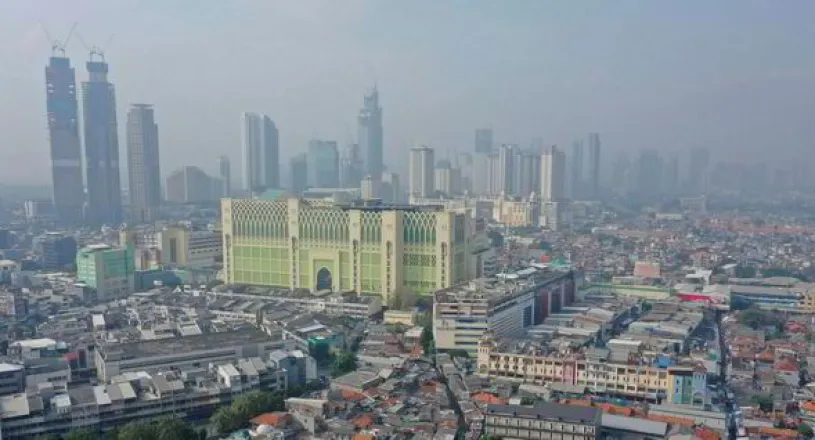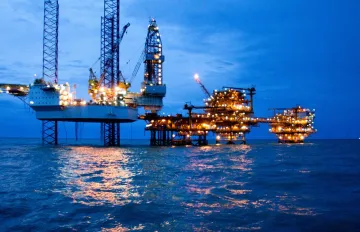News

OPINION: Indonesia and Big Oil need to embrace to unlock offshore gas potential
Despite being designated a project of 'National Strategic Interest’, progress has stalled in recent years on Chevron’s Indonesia Deepwater Development (IDD), which includes the Gendalo and Gehem fields.
Another such designated project, the Inpex-operated Abadi liquefied natural gas development, also faces challenges.
Prior to the outbreak of coronavirus, industry sources had tipped US supermajor Chevron to sell out of IDD ahead of the second development phase, with Italy’s Eni seen in pole position to acquire its operated stake.
Despite protracted negotiations with Indonesia’s upstream regulator SKK Migas, the US player has struggled for years to come up with a commercially viable development solution to underpin its multi-billion dollar investment.
Today, Chevron’s future in Indonesia is looking even more uncertain given that it lost out to Pertamina in its bid to secure an extension for its producing Rokan oil asset.
Meanwhile, market sources recently again tipped Inpex’s sole Abadi partner Shell as looking to exit the project and divest its 35% interest.
Initially, there had been industry talk that Shell’s touted departure was due to the Indonesian government’s decision to veto the originally proposed floating LNG development.
However, Shell now appear to be considering pulling out of Abadi — which will exploit upwards of 10 trillion cubic feet of gas reserves — purely on commercial grounds.
Indonesia has already seen ExxonMobil walk away from exploiting the giant Natuna D-Alpha (now East Natuna) gas field, albeit on technical as well as commercial grounds.
The republic seems increasingly unable to reach commercially agreeable terms with ‘Big Oil’.
This has seen industry heavyweights scale back their investments against the backdrop of Pertamina taking over assets rather than teaming up in a partnership.
Such deals may yet, however, be pulled off and — without any major concessions over the negotiating table — Indonesia’s discovered giant gas resources could finally be exploited.
Another such designated project, the Inpex-operated Abadi liquefied natural gas development, also faces challenges.
Prior to the outbreak of coronavirus, industry sources had tipped US supermajor Chevron to sell out of IDD ahead of the second development phase, with Italy’s Eni seen in pole position to acquire its operated stake.
Despite protracted negotiations with Indonesia’s upstream regulator SKK Migas, the US player has struggled for years to come up with a commercially viable development solution to underpin its multi-billion dollar investment.
Today, Chevron’s future in Indonesia is looking even more uncertain given that it lost out to Pertamina in its bid to secure an extension for its producing Rokan oil asset.
Meanwhile, market sources recently again tipped Inpex’s sole Abadi partner Shell as looking to exit the project and divest its 35% interest.
Initially, there had been industry talk that Shell’s touted departure was due to the Indonesian government’s decision to veto the originally proposed floating LNG development.
However, Shell now appear to be considering pulling out of Abadi — which will exploit upwards of 10 trillion cubic feet of gas reserves — purely on commercial grounds.
Indonesia has already seen ExxonMobil walk away from exploiting the giant Natuna D-Alpha (now East Natuna) gas field, albeit on technical as well as commercial grounds.
The republic seems increasingly unable to reach commercially agreeable terms with ‘Big Oil’.
This has seen industry heavyweights scale back their investments against the backdrop of Pertamina taking over assets rather than teaming up in a partnership.
Such deals may yet, however, be pulled off and — without any major concessions over the negotiating table — Indonesia’s discovered giant gas resources could finally be exploited.
more News
 Siasat Kontraktor Migas bikin Pencarian Migas Tetap Normal di Tengah Pandemi
Siasat Kontraktor Migas bikin Pencarian Migas Tetap Normal di Tengah PandemiPandemi Covid-19 membuat aktivitas tatap muka menjadi terbatas. Namun, tidak membuat proyek pencarian minyak dan gas bumi (migas) harus terhenti. Hal ini disiasati Husky-CNOOC Madura Limited (HCML) dengan pengadaan peralatan secara online.
Senior Manager SCM HCML Rizal Kamal mengatakan, dalam kegiatan pencarian migas perusahaan pencari migas di Selat Madura tersebut mengedepankan aspek keselamatan dan kesehatan Kerja.
Senior Manager SCM HCML Rizal Kamal mengatakan, dalam kegiatan pencarian migas perusahaan pencari migas di Selat Madura tersebut mengedepankan aspek keselamatan dan kesehatan Kerja.
OPINION: Indonesia and Big Oil need to embrace to unlock offshore gas potential
OPINION: Indonesia is facing an uphill battle to get some of its key gas mega-projects off the drawing board, with the main stumbling block seen as the lack of return on operators’ investments.
Harga Minyak Terkoreksi Dipicu Kekhawatiran Investor atas Permintaan
NEW YORK- Harga minyak turun di bawah pencapaian tertinggi lima bulan pada akhir perdagangan Kamis atau Jumat (7/8) pagi WIB, jatuh setelah sesi di mana sentimen bearish tentang permintaan bahan bakar menangkal optimisme tentang pengurangan pasokan Irak, mendorong harga masuk dan keluar dari wilayah positif.
Reuters melaporkan harga minyak mentah berjangka Brent untuk pengiriman Oktober turun US$ 8 sen menjadi ditutup pada US$45,09 per barel. Sedangkan minyak mentah berjangka West Texas Intermediate (WTI) untuk pengiriman September turun US$24 sen menjadi menetap di US$41,95 per barel.
Di awal sesi, pengurangan produksi yang direncanakan Irak telah menopang harga minyak. Tetapi, kemudian tertekan kembali oleh kekhawatiran permintaan akibat perlambatan ekonomi dari pandemi virus corona, menurut Phil Flynn, analis senior di Price Futures Group di Chicago.
Reuters melaporkan harga minyak mentah berjangka Brent untuk pengiriman Oktober turun US$ 8 sen menjadi ditutup pada US$45,09 per barel. Sedangkan minyak mentah berjangka West Texas Intermediate (WTI) untuk pengiriman September turun US$24 sen menjadi menetap di US$41,95 per barel.
Di awal sesi, pengurangan produksi yang direncanakan Irak telah menopang harga minyak. Tetapi, kemudian tertekan kembali oleh kekhawatiran permintaan akibat perlambatan ekonomi dari pandemi virus corona, menurut Phil Flynn, analis senior di Price Futures Group di Chicago.
PERKUAT KOMITMEN QHSSE PHE ONWJ GELAR LOST CONTROL MEETING (LCM) SEMESTER I 2019 DI MARUNDA SHOREBASE
Dalam rangka menjaga dan terus meningkatkan komitmen penerapan aspek Quality, Health, Safety, Security dan Environmental (QHSSE), PHE ONWJ menyelenggarakan Lost Control Meeting (LCM) dengan tema QHSSE Excellent on Project Execution dengan Facility Construction Division sebagai Host, di wilayah kerja Marunda Shorebase-Warehouse Q, Rabu, 3 Juli 2019.


